Doctor Who Death to the Daleks: Part One (1963–1989) Online
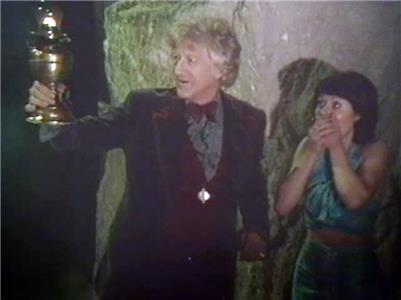
- Original Title :
- Death to the Daleks: Part One
- Genre :
- TV Episode / Adventure / Drama / Family / Sci-Fi
- Year :
- 1963–1989
- Directror :
- Michael E. Briant
- Cast :
- Jon Pertwee,Elisabeth Sladen,Duncan Lamont
- Writer :
- Terry Nation
- Type :
- TV Episode
- Time :
- 25min
- Rating :
- 7.4/10
As the TARDIS heads to the paradise planet Florana where the Doctor and Sarah go for a holiday, the TARDIS goes off-course and arrives on the barren planet Exxilon, where the TARDIS is loosing power. The Doctor and Sarah finds a group of humans and Daleks are searching for Parrinium, a mineral which is the only antidote to a space plague. Both parties encounter the native people and trouble ensues. In an attempt to find what caused the power-loss, the Doctor, chased by the Daleks, enter the Exxilon's lost city to be able to stop the power draining phenomenon.
| Episode complete credited cast: | |||
| Jon Pertwee | - | Doctor Who | |
| Elisabeth Sladen | - | Sarah Jane Smith | |
| Duncan Lamont | - | Dan Galloway | |
| John Abineri | - | Richard Railton | |
| Neil Seiler | - | Commander Stewart | |
| Julian Fox | - | Peter Hamilton | |
| Joy Harrison | - | Jill Tarrant | |
| Mostyn Evans | - | High Priest | |
| Michael Wisher | - | Dalek Voices (voice) | |
| John Scott Martin | - | Dalek Operator (as John Scott-Martin) | |
| Cy Town | - | Dalek Operator | |
| Murphy Grumbar | - | Dalek Operator (as Murphy Grunbar) |
Paddy Russell was asked to direct this serial but baulked at directing the Daleks.
The dark setting of Exxilon was inspired by the blackouts that occurred throughout the U.K at the time.
Several modifications were made to avoid similarities with Planet Of The Daleks: the jungle-choked Exxilon became rocky and barren, while the humans were more securely established than the hunted Thals of the previous story.
Production was undermined when several props and sets went missing. Furthermore, the cast found the demanding recording schedule to be very exhausting - a situation not ameliorated by Jon Pertwee's increasingly disinterested attitude toward Doctor Who (1963).
It was Robert Holmes who came up with the title, as he greatly disliked the Daleks.
This story originally did not feature the Daleks. They were included because of Barry Letts and Terrance Dicks' desire to cash in on the Daleks' popularity.
This episode was watched by 8.1 million viewers on its original transmission.
No new Dalek casings were constructed for this serial. Because of the unsatisfactory quality of the new Daleks made for Planet Of The Daleks, most of those used on Death To The Daleks were casings surviving from the Sixties.
Many of the Dalek casings used for this story dated from the 1960s (due to the unsatisfactory quality of the casings produced for "Planet of the Daleks").
This would be the final televised Dalek story not to feature their creator Davros or use the traditional "of the Daleks" naming convention until Doctor Who: Dalek (2005).
Features the only appearance of the Silver and Black Daleks, as the Dalek story after this would return to the Gun metal colour scheme which would be used for the remainder of the Classic series.
The arrowhead insignia the Marine Space Corps wears is similar to both the insignia of Star Trek (1966)'s Starfleet (from which it is rotated 90 degrees counter-clockwise) and the villainous Federation of Terry Nation's later project Los siete de Blake (1978) (from which it is rotated 180 degrees).
A History of the Universe and aHistory arbitrarily date this story to 2600 as it takes place after the Dalek Wars.
This serial was released by the BBC on video cassette in the UK in July 1987.
Fans voted this number 117 in a countdown of the 163 Doctor Who (1963) stories in Outpost Gallifrey's 40th anniversary poll in 2003. Only "The Chase" was a less popular Dalek serial.

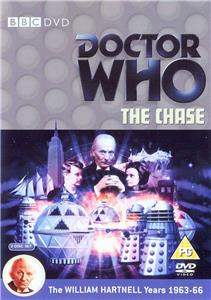
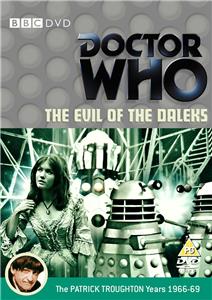
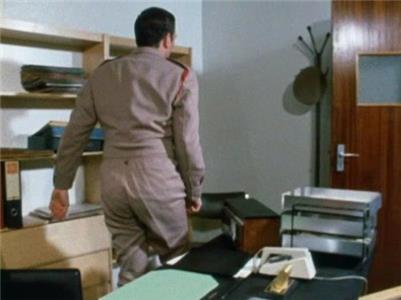
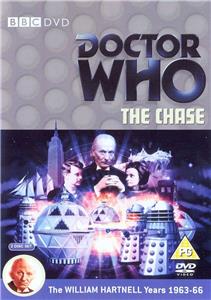
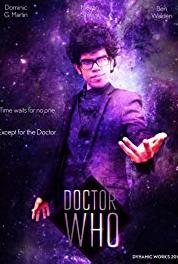
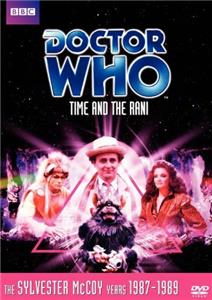
User reviews